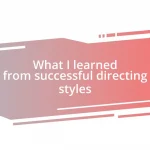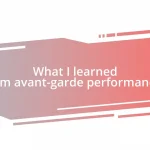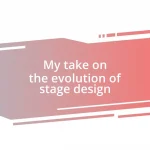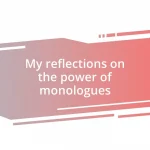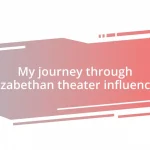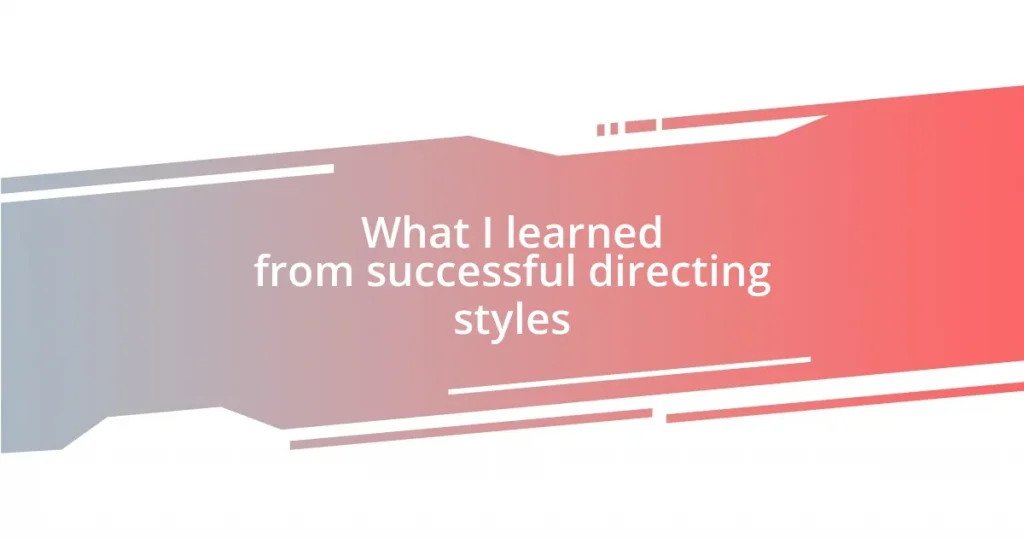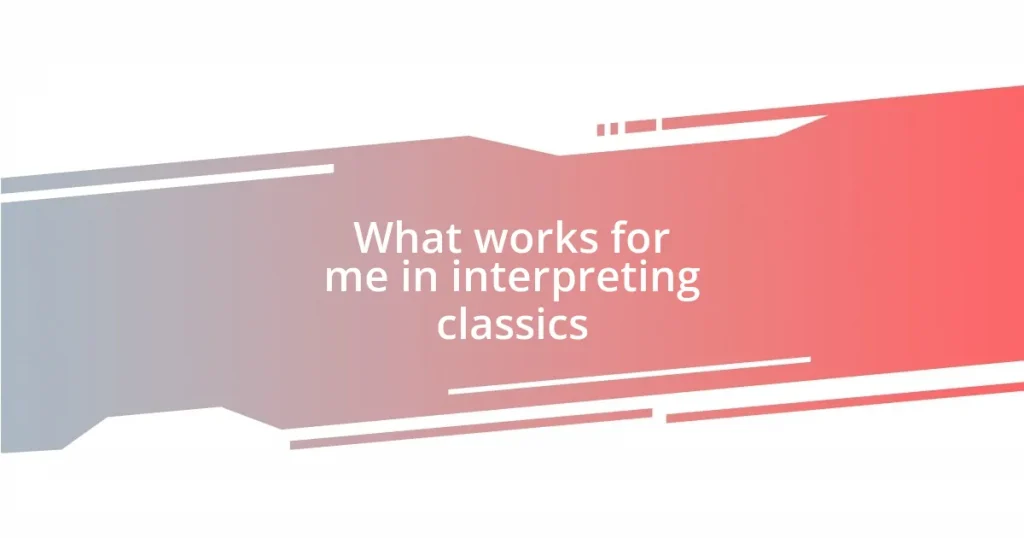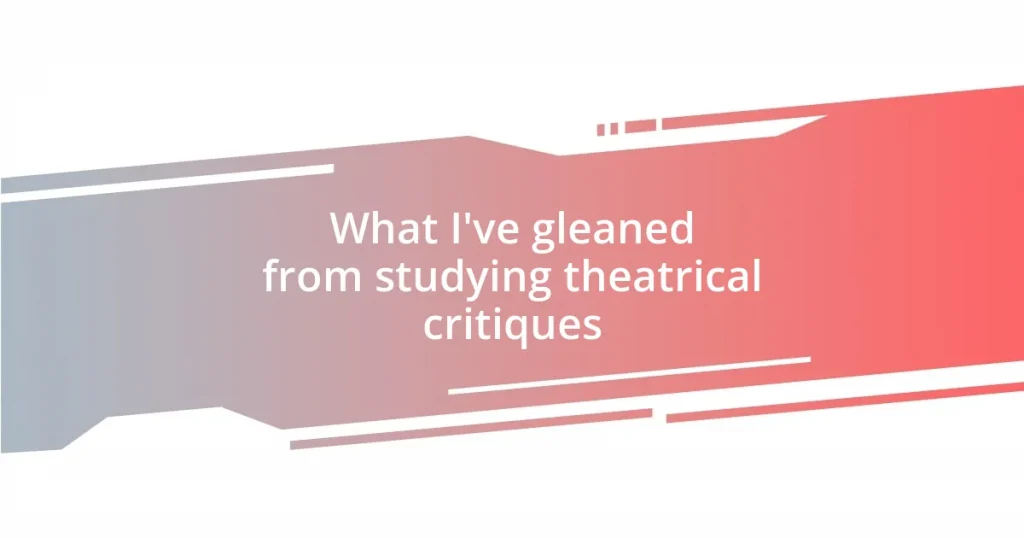Key takeaways:
- Rejection is a universal experience that often leads to personal growth and reflection.
- Acknowledging emotional responses such as disappointment and self-doubt can help in processing rejection healthily.
- Reframing rejection as feedback rather than failure allows for learning and resilience building.
- Practicing self-compassion and engaging with support networks can aid in coping with feelings of rejection.

Understanding the nature of rejection
Rejection can feel like a punch to the gut, can’t it? I remember the first time I applied for a job I really wanted, and getting that dreaded email felt like my dreams had crumbled. It’s important to realize that rejection isn’t just a closed door; it’s often a necessary step toward growth and clarity.
At its core, rejection stems from a clash between expectations and reality. I’ve often pondered why we internalize rejection so deeply. Why do we let a single ‘no’ overshadow countless ‘yeses’? I’ve learned that our self-worth can become tangled with external validation, making it tough to separate the two.
Understanding rejection means acknowledging its universality—it happens to everyone, regardless of status or talent. I’ve even had friends who seem perpetually successful share stories of heart-wrenching rejection. It’s a reminder that often, what feels like a personal failing is just a part of the broader human experience, urging us to reflect and rebound.

Recognizing personal emotional responses
Recognizing my emotional responses to rejection has been a journey of self-discovery. I remember a time when I didn’t just feel disappointed but genuinely embarrassed after missing out on a promotion I had set my heart on. I realized my initial reaction was to hide my feelings, thinking it’d make me stronger—a misstep that only perpetuated the hurt. It took me a while, but I learned to name those feelings: disappointment, embarrassment, even anger. Acknowledging them helped me process my emotional landscape more effectively.
When confronted with rejection, I’ve noticed several emotional responses that are quite common:
- Disappointment: That familiar sinking feeling when hopes are dashed.
- Embarrassment: The urge to withdraw and hide from others.
- Anger: A quick reaction, often directed at myself or the situation.
- Self-doubt: Questioning my abilities or value after being rejected.
- Sadness: A lingering feeling that can creep in unexpectedly.
By identifying these emotions, I can choose healthier responses rather than letting them fester inside. It’s empowering to confront each emotion and understand that they are valid parts of the human experience.

Shifting perspective on rejection
It’s fascinating how simply shifting my perspective on rejection can transform a painful experience into an opportunity for growth. I used to see rejection as a definitive end, a final answer to my efforts. But then I started viewing it as a reroute, like taking an unexpected detour on a road trip. One time, after not landing a dream job, I took a moment to reflect and realized that it pushed me to explore other opportunities that ultimately led me to a position I hadn’t considered before but loved much more.
I find that considering rejection as feedback rather than a failure softens its sting for me. I’ve learned to treat rejection as a mini-experiment in my life. Each “no” serves as a data point that helps me refine my approach. For instance, after getting rejected by a writing competition, I sought feedback from the judges. Their insights transformed my next submission into a piece that earned a spot in a different contest—one I hadn’t even thought to enter before.
Embracing the idea that rejection is a part of everyone’s journey has been liberating. I’ve started to appreciate my own resilience in facing these moments. Just like a butterfly must struggle out of its cocoon, I now see rejection as a catalyst for my transformation. It’s this recognition that makes each setback seem less like a personal blow and more like an opportunity to learn and grow.
| Perspective on Rejection | Traditional View |
|---|---|
| Growth Mindset | Rejection as Feedback |
| Finality | Opportunity for Growth |
| Personal Failure | Universal Experience |

Practical coping strategies for rejection
When faced with rejection, I find that practicing self-compassion can be incredibly healing. The first time I encountered a major setback, I felt like I was the only one struggling. However, I started reminding myself that everyone faces rejection at some point. It’s okay to feel hurt; what matters is how we respond. Asking myself, “Would I speak this way to a friend?” helps me ease into a kinder inner dialogue.
Another strategy I’ve embraced is distraction. I remember a particularly stinging rejection after an important client meeting. Instead of wallowing in disappointment, I picked up my paintbrush and let my emotions flow onto the canvas. Engaging in creative outlets has not only provided an escape but has often led to newfound clarity about my next steps. It’s remarkable how shifting my focus, even for a short time, can transform my mental state.
Finally, I always try to connect with my support network after experiencing rejection. One evening, feeling particularly low after not being selected for a project, I reached out to friends for a virtual game night. Their laughter and encouragement lifted my spirits and reminded me that I have a tribe who believes in me. Have you ever noticed how sharing your feelings with trusted friends can lighten the emotional load? It’s in those moments of connection that I truly realize rejection doesn’t define my worth.

Building resilience through rejection
Building resilience through rejection is a profound journey. I remember a time I pitched an idea to a panel and watched their expressions shift from intrigue to indifference. At first, I felt like I’d been punched in the gut. But as I sat there, I realized this experience was a chance to gather insights. It taught me to ask better questions and present my ideas more clearly next time. Doesn’t it feel empowering to turn those moments of vulnerability into stronger foundations?
The emotional aftermath of rejection can be overwhelming, yet I’ve discovered that it can strengthen my resolve. When I faced a personal setback in my writing, I took a long walk to process my feelings. With every step, I allowed myself to feel the disappointment washing over me, but I also began to rethink my approach. I found the courage to experiment with new styles and themes, eventually evolving as a writer. Have you ever discovered deeper parts of yourself when faced with adversity?
Sometimes, I think about how rejection can foster empathy. When I support others through their own struggles, my own experiences become tools for connection. After I received a frustrating response to a project, I reached out to a colleague who had been through similar challenges. Sharing our experiences transformed my disappointment into a meaningful conversation, reminding me that I’m not alone in this journey. Isn’t it profound how pain shared can create bonds that strengthen us?

Learning from rejection experiences
Experiencing rejection can feel like a heavy weight on your chest, yet I’ve learned it often leads to unexpected growth. Once, after an important job interview, I left feeling completely deflated. It was in that moment of solitude that I realized I needed to revisit my approach—what could I have done differently? Reflecting on that helped me craft better responses for future interviews, ultimately boosting my confidence. Doesn’t it feel good to transform disappointment into a stepping stone for success?
I find that rejection can also spark a deeper understanding of my own values. When a long-term relationship ended, I was initially overwhelmed with grief. Yet, after some time, I began to see how it illuminated what truly mattered to me in future partnerships. I started journaling about my needs and desires—an exercise that improved my self-awareness tremendously. Isn’t it fascinating how challenges can lead us to realize what we genuinely want and need?
Moreover, learning to embrace rejection has taught me the importance of patience. I once submitted a story to a literary journal, only to receive a polite but firm rejection. Instead of letting it break my spirit, I used that feedback to revisit my writing. With persistence and a renewed perspective, I eventually published my work in a different forum that felt like a perfect fit. Have you ever found that waiting for the right opportunity can lead to something even better?
